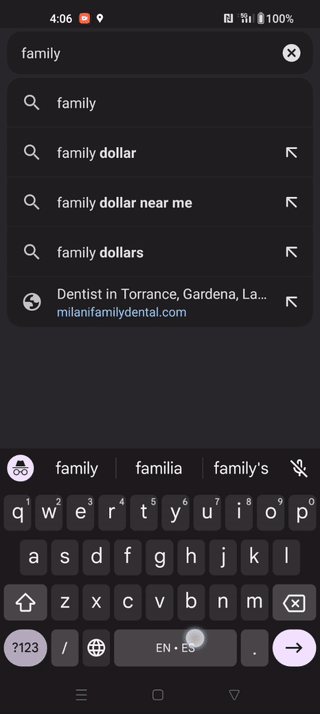Catering SEO: Elevating Your Online Presence for Culinary Success
Are you a catering company looking to sizzle on the digital platter and tantalize your online audience’s taste buds? Welcome to our Catering SEO services – your online secret ingredient for culinary triumph.
The Importance of Catering SEO Services
In an era where the internet serves as the ultimate dining guide, having a delectable menu isn’t enough. You must ensure that your catering business appears on potential clients’ digital menus. Catering SEO enables hungry customers searching for catering services to find your brand.
Imagine you’re a potential customer looking for the perfect catering partner for your special event. You search the internet for “top catering services near me.” Without Catering SEO, your mouthwatering creations might remain hidden, lost in the vast digital culinary landscape. Meanwhile, your competitors with optimized websites steal the spotlight and the business.
Unwrapping SEO: What Is It?
SEO, or Search Engine Optimization, is the art and science of enhancing your website’s visibility on search engines like Google. It involves optimizing various aspects of your online presence to rank higher in search results, attracting organic traffic interested in your catering services.
Think of SEO as the secret recipe that makes your catering website stand out in the digital buffet. The seasoning ensures that when someone searches for “catering services,” your website appears at the top, garnishing their search results with your tantalizing offerings.
The Role of SEO in the Catering Industry
In the catering world, where presentation is paramount, SEO is your virtual maître d’. It ensures your business is prominently featured when potential clients search for catering services, allowing you to showcase your culinary delights and leave a lasting impression.
Imagine you’re an upscale catering company specializing in gourmet weddings. A bride-to-be searches online for “luxury wedding caterers.” Thanks to Catering SEO, your business takes center stage in her search results. Your elegantly designed website, complete with stunning visuals and mouthwatering menus, beckons her to explore further.
The Benefits of Catering SEO
Increased Visibility
Catering SEO catapults your catering company to the forefront of search results, ensuring you’re the first name clients see when they search for catering services.
Picture this: A corporate event planner is tasked with finding the perfect catering partner. They sit down at their computer and type “reliable corporate catering services” into the search bar. Thanks to Catering SEO, your business is right there in front of them, offering a solution that matches their needs perfectly.
Targeted Traffic
SEO brings potential clients actively seeking catering solutions to your website, increasing the chances of converting them into satisfied customers.
Imagine a couple planning their dream wedding. They’re on the hunt for the best wedding caterer in town and decide to search for “wedding catering packages.” Catering SEO ensures that your website pops up, enticing them with your tailored wedding services.
Enhanced Credibility
Higher search rankings build trust, as users often associate top results with authority and quality.
Put yourself in the shoes of a professional event planner tasked with organizing a high-profile corporate event. When they discover your catering business at the top of the search results for “corporate event catering,” they’re more likely to reach out, confident in your expertise.
Measurable Results
With analytics tools, you can track the impact of SEO, making it a data-driven investment.
By analyzing website traffic, conversion rates, and other key metrics, you can pinpoint how Catering SEO efforts have translated into increased inquiries, bookings, and revenue for your catering business.
SEO’s Impact on Other Digital Marketing Efforts
SEO is the pillar upon which your digital marketing strategy stands. It enhances the effectiveness of various digital marketing channels like content marketing, Google AdWords, Paid Advertising, PPC, and social media by ensuring that your website is ready to welcome and engage visitors.
Consider this: Your catering business invests in a fantastic content marketing strategy, creating mouthwatering blog posts about culinary trends and event planning tips. Without Catering SEO, those carefully crafted articles might remain hidden in the depths of the internet. However, with SEO optimization, your blog posts surface when users search for relevant topics, extending your reach and establishing your brand as an authority.
Synergy with Other Digital Marketing Services
Content Marketing
SEO-driven content ensures your blog posts and articles resonate with your target audience, increasing their reach.
Imagine your catering company specializes in vegan and vegetarian cuisine. Your blog post about “The Rise of Plant-Based Catering” has valuable insights. Catering SEO ensures it ranks high when individuals search for plant-based catering options, drawing a dedicated audience interested in your offerings.
PPC
SEO identifies valuable keywords that can be integrated into your PPC campaigns for better ad performance.
Let’s say your catering business decides to run a PPC campaign promoting your corporate event catering services. Catering SEO has already pinpointed the most relevant keywords, ensuring your PPC ads reach the right audience boosting ad click-through rates and conversions.
Social Media
SEO helps your website’s content gain traction on social platforms, extending your brand’s reach.
You share a captivating Instagram post showcasing your latest catering event – an elegant wedding reception with a stunning dessert table. Catering SEO ensures that when users search for “luxury dessert catering” on Instagram, your post appears in the top results, expanding your social media reach.
Monthly SEO Services: A Recipe for Success
Why settle for a one-time SEO strategy when you can have an ongoing partnership? Our monthly Catering SEO services offer continuous optimization, adapting to changing search trends and ensuring your brand maintains a competitive edge.
Think of Catering SEO as an ongoing partnership, like having a seasoned sous-chef in your kitchen. With each month, we fine-tune your digital recipe, adding the perfect ingredients to keep your website ranking high and attract more clients.
Peace of Mind with Monthly SEO
Our monthly SEO service lets you focus on your culinary prowess while we handle the digital seasoning. It’s peace of mind that your online presence is consistently evolving to meet the appetites of your digital audience.
Imagine being a catering chef focused on creating a five-star dining experience for your clients. With monthly Catering SEO, you don’t need to worry about the ever-changing world of digital marketing. We ensure your online presence stays fresh and appealing, allowing you to concentrate on crafting exquisite dishes.
Specialized Catering SEO Agency vs. General Marketing Agencies
Choosing a specialized Catering SEO company over a general marketing agency is like selecting a gourmet chef over an all-purpose cook. We understand the catering industry’s nuances, ensuring that every SEO strategy is tailored to your unique needs, amplifying your online success.
Consider it as choosing a catering service specializing in your preferred cuisine – say, Italian fine dining. Their expertise in crafting exquisite Italian dishes surpasses that of a general catering company, just as our Catering SEO expertise outshines general marketing agencies.
Beyond SEO: A Holistic Approach
Our Catering SEO services go beyond keywords. We delve into aspects like keyword research, search volume, search intent, Google Analytics, Google Maps, Google Business Profile, NAP (Name, Address, Phone), online directories, online reviews, and reputation management. It’s a comprehensive package that ensures your catering business thrives in the digital arena.
Imagine your catering business as a sumptuous banquet. Catering SEO is just one course – the appetizer. But our holistic approach ensures you enjoy a full feast of digital success, complete with the main course (keyword research), sides (Google Maps and Business Profile), and the sweet dessert of positive online reviews.
Catering SEO Essentials: Ingredients for Online Success
Now, let’s get into the details of each aspect related to Catering SEO and their crucial roles in optimizing your online presence.
Keyword Research: Unlocking the Language of Your Audience
Keyword research is the foundation of Catering SEO. It involves identifying and selecting specific keywords or phrases that potential clients use when searching for catering services online. This research helps you understand the language of your target audience, allowing you to tailor your website’s content accordingly.
For example, if you specialize in wedding catering, effective keyword research will reveal whether potential clients are searching for terms like “wedding catering services,” “catering for weddings,” or “wedding catering packages.” By knowing the keywords your audience uses, you can optimize your website’s content to match their search intent, increasing the chances of appearing in their search results.
Search Volume: Gauging Popularity and Demand
Search volume refers to the number of times a specific keyword or phrase is searched for on search engines over a certain period, typically per month. Understanding search volume is essential because it helps you prioritize which keywords to target.
For instance, if you find that “corporate event catering” has a significantly higher search volume than “gourmet picnic catering,” you may allocate more SEO efforts toward the former keyword. This ensures you’re focusing on keywords that are more likely to drive traffic and inquiries to your catering business.
Search Intent: Meeting User Expectations
Search intent, or user intent, is a critical aspect of SEO. It involves analyzing the reason behind a user’s online search. By understanding search intent, you can align your website’s content with what users seek.
Consider a user searching for “catering menu ideas.” Their intent is likely to find inspiration for planning a menu, not necessarily to hire a catering service. In this case, your catering website could provide valuable blog posts or resources that showcase your expertise in menu planning, capturing the user’s interest and potentially leading to future catering inquiries.
Google Analytics: Data-Driven Decision Making
Google Analytics is a powerful tool for tracking and analyzing website traffic and user behavior. It provides valuable insights into how users interact with your catering website, including which pages they visit, how long they stay, and whether they convert into leads or customers.
For example, you can use Google Analytics to determine which pages on your website receive the most traffic, helping you identify popular catering services or menu options. Additionally, you can track conversions, such as inquiries or quote requests, to measure the effectiveness of your SEO efforts in generating leads for your catering business.
Google Maps: Local Visibility and Engagement
Google Maps plays a pivotal role in local SEO for catering businesses. It allows you to showcase your physical location, service areas, and contact information to potential clients in your vicinity. Optimizing your Google Maps listing ensures that your catering business appears in local search results and maps when users search for catering services nearby.
For instance, when someone searches for “catering near me” or “best catering in [your city],” a well-optimized Google Maps listing increases the likelihood of your catering company being displayed prominently, complete with essential details like your address, phone number, and customer reviews.
Google Business Profile: Building Trust and Visibility
Your Google Business Profile or Google My Business is another vital component of local SEO. The information panel appears on the right-hand side of Google search results when users search for your catering business or related keywords. Optimizing your Google Business Profile ensures that potential clients have easy access to essential information about your catering services.
Your profile can include details like your business hours, website links, photos of your culinary creations, and customer reviews. Maintaining an accurate and engaging Google Business Profile enhances your credibility and visibility in local search results, increasing the chances of attracting nearby clients.
NAP (Name, Address, Phone): Consistency Is Key
NAP consistency refers to ensuring that your catering business’s name, address, and phone number are accurately and consistently displayed across all online platforms and directories. Maintaining NAP consistency is crucial for local SEO, as search engines use this information to verify your business’s legitimacy and relevance to local search queries.
For example, if your business is listed as “Delicious Catering Services” with one address on your website but appears as “Delicious Caterers” with a different address on a third-party directory, it can confuse and hinder your local SEO efforts. Consistent NAP information helps search engines connect the dots and build trust in your business’s online presence.
Online Directories: Expanding Your Digital Footprint
Online directories are platforms where businesses can list their services, contact information, and other details. For catering businesses, being listed in relevant online directories enhances your online visibility and local SEO.
Consider directories like Yelp, Yellow Pages, or local business associations specializing in catering services. Having a presence on these platforms increases the chances of potential clients discovering your catering business when searching for local catering options.
Online Reviews: Building Reputation and Trust
Online reviews are a critical component of reputation management and local SEO. Positive reviews from satisfied clients can boost your credibility and encourage potential clients to choose your catering services over competitors.
Encourage your clients to leave reviews on platforms like Google, Yelp, or TripAdvisor, sharing their experiences with your catering business. Additionally, respond to positive and negative reviews to show your commitment to customer satisfaction. Online reviews influence your reputation and your local search rankings, a part of Search Engine Optimization for your catering business.
Reputation Management: Fostering a Positive Image
Reputation management involves actively monitoring and shaping your online image and brand perception. It includes addressing customer feedback, managing reviews, and proactively building a positive online reputation.
Effective reputation management in the catering industry involves strategies to encourage positive reviews, promptly address negative feedback, and showcase your commitment to excellence. A positive online reputation attracts more clients and contributes to your local SEO efforts, as search engines prioritize businesses with strong reputations in local search results.
Elevate Your Catering Business with Our Catering SEO Recipe for Success!
By incorporating these essential elements into your Catering SEO strategy, you’re not just aiming to rank higher in search results; you’re ready to have the best sous chef in the catering marketing industry. Your catering business will maintain a robust online presence, foster credibility, and attract more clients in the highly competitive culinary landscape. Are you ready to savor success on a silver platter? Contact us today and craft the perfect Catering SEO strategy together!









